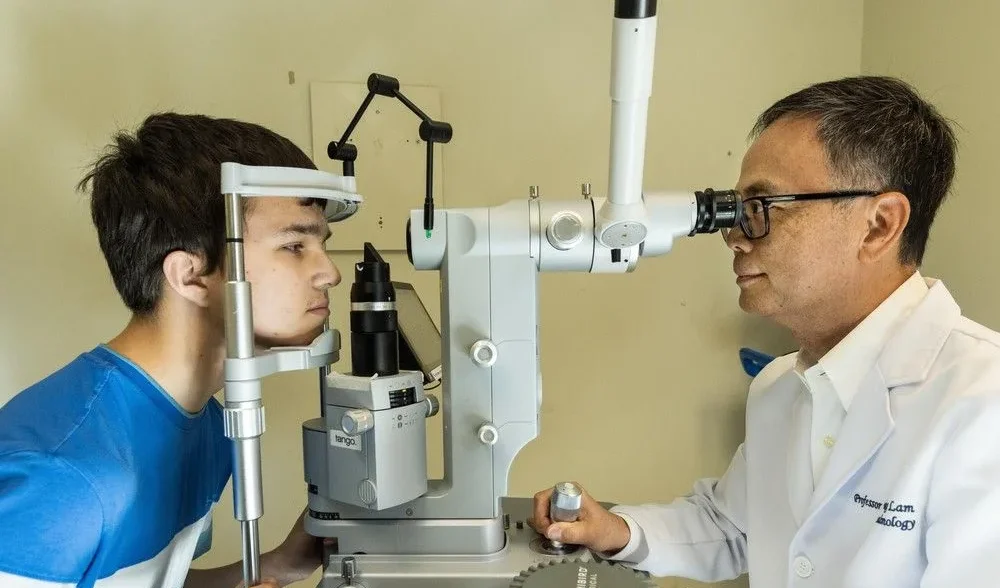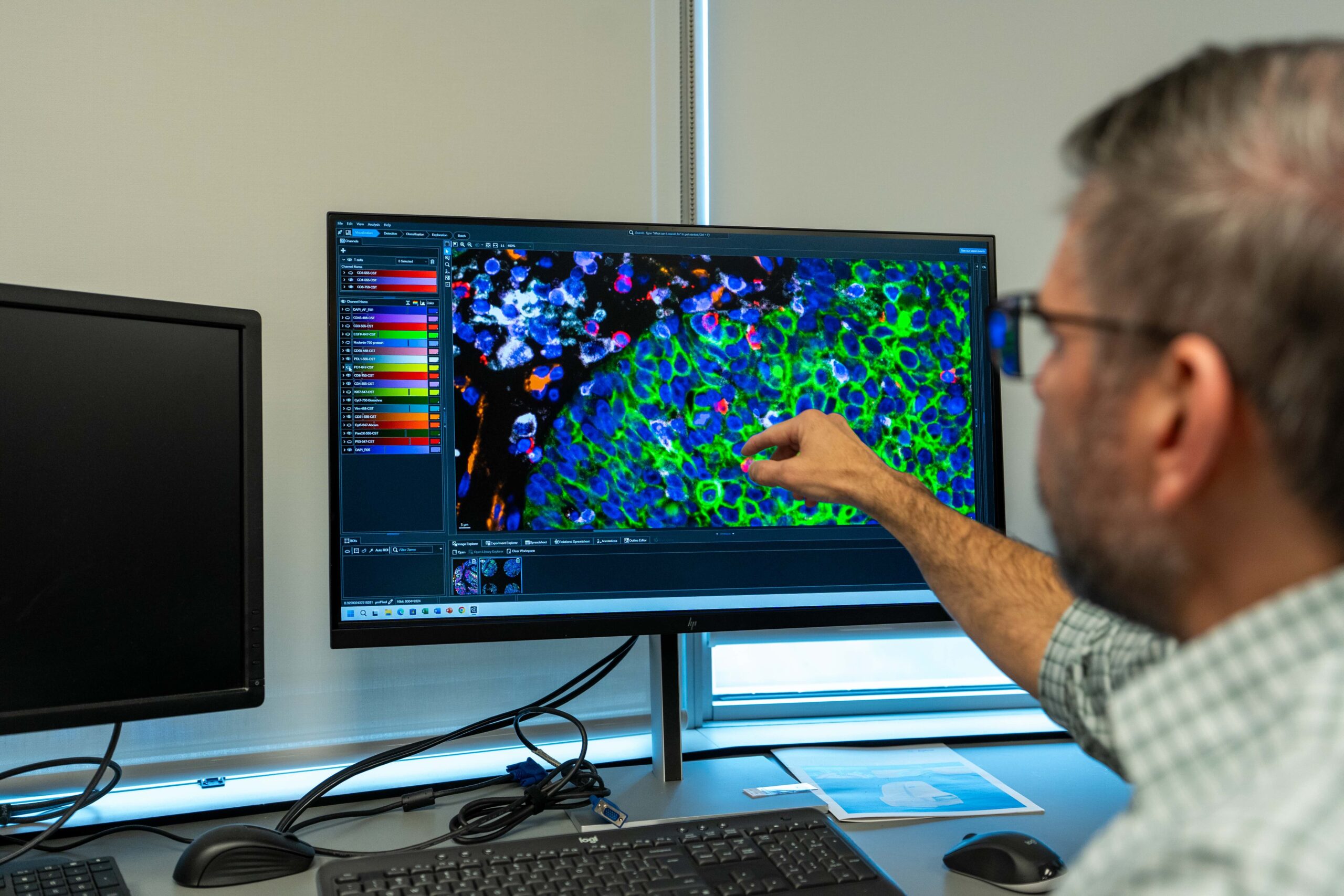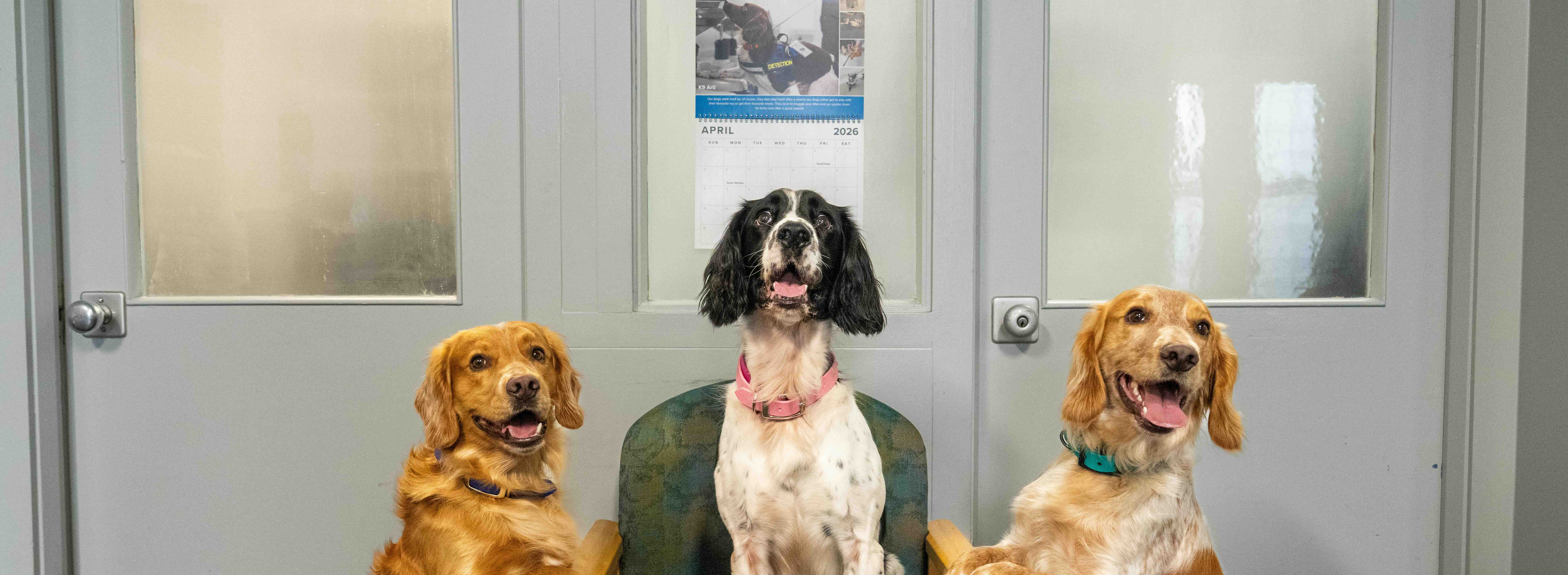The groundbreaking surgery was made possible by a new state-of-the-art ophthalmic microscope, funded by generous donations to VGH & UBC Hospital Foundation.
As a baby, Dominic Juillette was always attracted to light.
“We have a big bay window in my living room and he took over my window sill,” says his grandma and caregiver, Linda McInnis. “Everybody used to say, ‘Who’s that little boy in the window?’ and I’d say, ‘Well, that’s my grandson and that’s the only place he can see.’”
Now 15 years old and a Grade 10 honour roll student at Fort St. James Secondary School, Dominic has become one of the first patients in BC to receive the new retinal gene therapy and he is the first Indigenous person in Canada to receive it.
“I can take my scooter to school now,” says Dominic. “I used to have to be taken to school by my grandad.”
Dominic has a rare genetic eye disorder, called Leber Congenital Amaurosis, that results in severe vision loss at an early age. The disorder is caused by a faulty RPE65 gene.
For Dominic, the disease had him holding his grandmother’s shoulder, as a guide, to get through dimly lit areas for most of his life.
“My grandma has been by my side through this whole process,” Dominic says. “She’s very cool.”
According to Fighting Blindness Canada, Leber Congenital Amaurosis affects around one in every 50,000 people. Health Canada approved the first targeted gene therapy used to treat the disease, and BC approved coverage of the therapy under public health insurance in 2023.
The gift of sight
During the two surgeries this year, on January 24 and February 5, Drs. Wai Ching Lam and Zaid Mammo replaced the gene in each of Dominic’s eyes with one that has photo receptors for vision in the dark. A new microscope with an intraoperative Optical Coherence Tomography (OCT), funded by VGH & UBC Hospital Foundation, helps to perform the precise injection under the retina and provides real-time imaging of tissue beneath the surface during procedures.
“Studies show this type of vision loss is similar to the loss of a limb. It can affect learning, the types of activities they can participate in or where they are able to work,” says Lam. “With this treatment, early benefits for patients have already been tremendous.”
VGH also acquired unique diagnostic equipment to help monitor night blindness, called a Full-field Stimulus Test (FST), which uses flashes of light to measure visual function, thanks to funding from the BC Expensive Drugs for Rare Diseases program. Ophthalmology Geneticist Dr. Kevin Gregory-Evans, who helped secure the FST, provides inherited retinal disease diagnoses and aftercare. He now helps Dominic manage the disease.
Dominic is on the autism spectrum and says his vision now, compared with before the operation, is like someone turned on a really bright light.
“He’s not a man of many words, but he’s not scared to try anything,” Linda says. “It took a few months for the gene therapy to kick in, but then he jumped on that e-scooter and just took off. He’s enjoying sports more and goes downtown with the other kids in his class to grab a sub. He never used to leave the school grounds before. He can also see stars now. Seeing them with his own eyes is a major first.”
Linda thanks the team that took care of Dominic at the hospital and the First Nations that helped them with travel and accommodations to attend Dominic’s many health appointments, including the Nak’azdli Whut’en, Carrier, and Sekani First Nations.
“Raising Dominic has been one adventure after another,” says Linda. “He’s the apple of my eye and I can’t wait to see where he goes next.”
This retinal gene therapy surgery has also been performed in other provinces across Canada, including Alberta, Ontario, and Quebec.
Original Story: Vancouver Coastal Health
Photo Credit: Arlen Redekop, PNG
WATCH VIDEO
VGH & UBC Hospital Foundation partners with donors to fuel groundbreaking research, world-class health care teams, and life-saving treatments benefitting everyone in BC. To donate, visit vghfoundation.ca/ways-to-give.
Share this:



